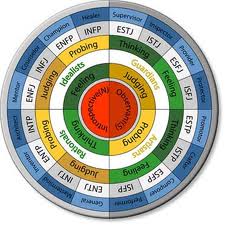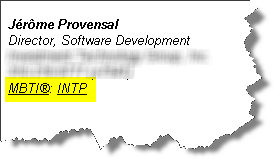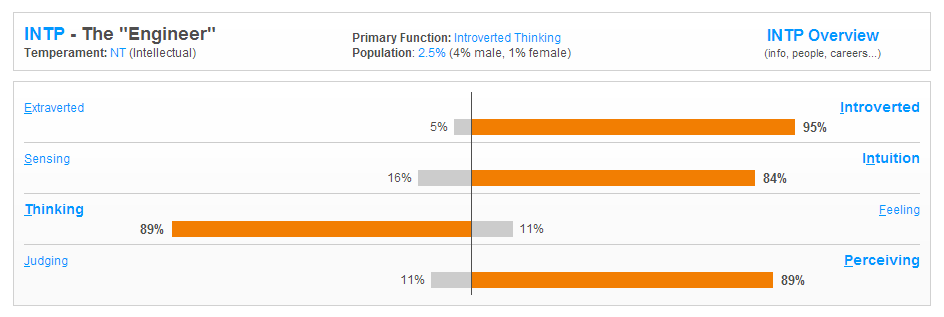The reputable MBTI personality test to help you know yourself and others
If you have ever received a work email from me, I’m wondering if you have ever noticed the last line of my signature? It looks like this:
It’s two URLs (highlighted in yellow here) and if you were to click on them you would find out that I’m an INTP-type person according to the well-known and respected Myers-Briggs test (based on the theories of Carl Jung).
The history behind this is that many years ago, my company invested money and effort to get a lot of people through the Myers & Briggs test and training.The rationale of knowing that type in the workplace were manifold but mainly:
(inspired by http://www.myersbriggs.org/type-use-for-everyday-life/mbti-type-at-work/)
The rationale behind the MBTI® personality test
- Know thyself:
When you understand your type preferences, you can approach your own work in a manner that best suits your style, including how you manage your time, problem solving, best approaches to decision making, and dealing with stress. Knowledge of type can help you deal with the culture of the place you work, the development of new skills, understanding your participation on teams, and coping with change in the workplace. If your work involves selling, knowledge of type can be helpful in understanding what clients need from you, especially how they best like to learn about products and services and how they like to interact during the process of gathering information and making decisions.
- support many different functions and situations including managing others, development of leadership skills, organizing tasks, creation and management of teams, training for management and staff, conflict resolution, motivation, executive coaching, diversity, recognition and rewards, and change management.
The rationale then is still very valid now.
The reason I’m bringing this up is that recently while researching my son’s type in order to help find a future college major (he’s 16), I found a website that allows you to take the test, for FREE. I took it and it arrived at the same conclusion that the professional tester did when she administered the test to me…. Minus the $$$ my company spent.
Take the test
I would encourage anyone to take the FREE (yet pretty thorough) test at http://www.mypersonality.info/basic-vs-pro/personality-type-test (it requires you to create a login but they have a “zero spam policy”).
If enough people take it and are interested in sharing their test, I think it would be pretty cool to create, in your organization, a wiki/SharePoint page listing everyone and their associated personality type.
If you do take the test, the website will produce a nice summary chart like this one:
If you end up being INTP, I’m sure that you’ll agree that INTPs rock!
Take it and let me know…
And for those who know me and thought that I was an extrovert, you’ll come to the realization that I’m a good faker. 🙂





